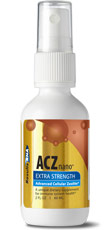Toxic chemicals behind 'new car smell': report
Toxic chemicals behind 'new car smell': report
![]() A new report from a U.S. environmental group suggests the "new car smell" long beloved by the purchasers of vehicles could be a sign of harmful chemicals inside the car.
A new report from a U.S. environmental group suggests the "new car smell" long beloved by the purchasers of vehicles could be a sign of harmful chemicals inside the car.
Much of the smell comes from plastics and materials used inside the car, from the steering wheel to the dashboard to the carpets — parts often made with chemicals including flame retardants, plasticizers and other chemicals that can give off gas or leach into the environment.
The Ecology Centre, a Michigan-based environmental group, tested components in the interiors of 200 new-model cars for toxic chemicals including bromine, chlorine, lead and other heavy metals. The chemicals "can be harmful when inhaled or ingested and may lead to severe health impacts such as birth defects, learning disabilities and cancer," the report notes.
The group rated the cars according to relative level of health and environmental concern associated with the chemicals in the vehicle, in comparison with other vehicles tested.
The cars of most concern included the Nissan Versa, Chevrolet Aveo and Kia Rio, which all rated above four on the five-point scale. The Chevy Cobalt, Chrysler PT Cruiser and Volvo V50 station wagon were among those rated as "of least concern."
The Ecology Centre's ratings do not offer an absolute measure of health risk or chemical exposure, the study notes. However, its investigation found some toxic chemicals at levels five to ten times higher in new cars than would be found in an average office or home.
"The nose is great at detecting small amounts of a chemical. If you can smell something, it's there," said Ernie Pokopchuk, an assistant professor in chemistry at the University of Winnipeg.
Pokopchuk said some of the chemicals identified in the story could have serious effects.
"They can be irritating, might be something as simple as making your eyes kind of red, feel like they're burning a little bit, irritation like that, or it can be as severe, with a high enough dosage, it can lead to health concerns, birth defects, cancers," he said.
Vince Gabrielli, manager of lease and commercial sales at a Winnipeg Dodge dealership, says this is the first he's heard about the issue.
"Obviously, it's a concern for most consumers," he said. "Manufacturers are always going to be wondering if there's enough toxins to be harmful to the public, and if that's the case, then they'll probably put restrictions on it and hopefully get rid of that."
Some companies, such as Volvo, are already selling cars with interiors marketed as healthier. In Volvo's case, the approach controls the use of nickel in dashboard controls, keys and safety-belt buckles and chemicals used in upholstery fabric and leather.
"Safety is much more than that small probability [of] what if I get into a crash," says Michael Rawluk at a Winnipeg Volvo dealership. "It's [also] how does this car impact my health?"
The Ecology Center hopes this study will push car manufacturers to use safer products in the future, noting that toxic chemicals are not required to make interior auto parts, and some manufacturers have begun to phase them out.
For people who already own cars listed as "of concern" in the study, the centre recommends using solar reflectors in the windshield, because heat and ultraviolet rays accelerate the release of chemicals; the centre also recommends opening the windows for a few minutes before driving off.

